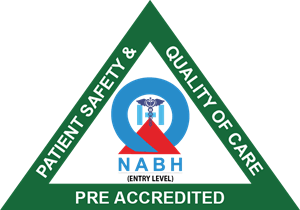Your eyes are one of the most important organs in your body, yet they are often neglected until problems arise. A routine eye checkup is essential to maintaining good vision and preventing serious eye conditions. Whether you wear glasses, contact lenses, or have never had vision problems, regular eye examinations help detect early signs of diseases like glaucoma, cataracts, diabetic retinopathy, and macular degeneration.
Why is a Routine Eye Checkup Important?
A comprehensive eye exam goes beyond just checking your vision. It evaluates the overall health of your eyes and can even detect underlying health conditions such as diabetes, high blood pressure, and neurological disorders. Some eye diseases develop without symptoms, making early detection through eye screening critical.
Key Benefits of Regular Eye Checkups:
✔ Early Detection of Eye Diseases – Conditions like glaucoma, cataracts, and macular degeneration can be detected before symptoms appear.
✔ Improved Vision – Get an updated prescription for eyeglasses or contact lenses to ensure optimal vision clarity.
✔ Prevent Digital Eye Strain – With increased screen time, computer vision syndrome is becoming more common. A routine checkup can help prevent long-term damage.
✔ Overall Health Monitoring – Your eyes can reveal signs of systemic diseases like diabetes, hypertension, and high cholesterol.
✔ Children’s Eye Health – Regular checkups ensure proper eye development and prevent learning difficulties due to vision problems.
How Often Should You Get an Eye Exam?
The frequency of routine eye checkups depends on factors such as age, risk factors, and existing eye conditions. Here’s a general guideline:
- Children (0-5 years): First eye exam by age 6 months, another at age 3, and before starting school.
- School-aged children (6-18 years): Annual exams to monitor vision changes.
- Adults (18-40 years): At least every 2 years unless vision problems occur.
- Adults (40-60 years): Every 1-2 years, as age-related eye diseases may begin to develop.
- Seniors (60+ years): Annual checkups to screen for cataracts, glaucoma, and macular degeneration.
Individuals with diabetes, hypertension, a family history of eye diseases, or high prescription glasses should schedule more frequent eye exams.
What to Expect During a Routine Eye Exam?
A comprehensive eye examination is painless and typically takes 30-60 minutes. Here’s what you can expect:
1. Case History & Symptoms Discussion
The optometrist or ophthalmologist will ask about any vision problems, medical history, medications, and family history of eye diseases.
2. Visual Acuity Test
This measures how well you see at different distances using the Snellen eye chart.
3. Refraction Test (Glasses/Contact Lens Prescription)
A phoropter helps determine the best lens prescription to correct nearsightedness, farsightedness, or astigmatism.
4. Eye Muscle Function & Alignment Test
The doctor examines how well your eye muscles work together, checking for strabismus (eye misalignment) and binocular vision issues.
5. Intraocular Pressure Test (Glaucoma Screening)
A tonometer measures the pressure inside your eyes to check for signs of glaucoma.
6. Slit Lamp Examination (Anterior Eye Health Check)
This allows the doctor to examine the cornea, iris, lens, and eyelids under magnification for conditions like dry eye syndrome, cataracts, or infections.
7. Retinal Examination (Dilated Eye Exam)
Using special eye drops to dilate the pupils, the doctor inspects the retina, optic nerve, and blood vessels for early signs of diabetic retinopathy, macular degeneration, or retinal detachment.
8. Color Vision & Depth Perception Test
These tests assess color blindness and eye coordination.
Common Eye Problems Detected During Routine Checkups
- Refractive Errors – Nearsightedness (myopia), farsightedness (hyperopia), astigmatism, and presbyopia require glasses or contact lenses for correction.
- Glaucoma – Increased eye pressure can lead to vision loss if left untreated.
- Cataracts – Clouding of the lens, affecting vision, often requiring surgery.
- Diabetic Retinopathy – Damage to the retina due to diabetes, leading to vision impairment.
- Macular Degeneration – Deterioration of the central vision, common in older adults.
- Dry Eye Syndrome – Common due to excessive screen time, causing redness, irritation, and discomfort.
- Computer Vision Syndrome – Eye strain from prolonged digital screen use, leading to blurred vision and headaches.
Cost of Routine Eye Checkups
The eye test cost varies based on location, clinic, and additional diagnostic tests required. Generally, routine eye exams range from ₹500 to ₹3000. Some clinics offer free eye checkup camps or discounted eye examination packages. Many health insurance plans cover annual vision exams—check with your provider.
Where to Get a Routine Eye Checkup?
Looking for a trusted eye specialist near you? Visit Dr. Shaila R Patel at:
✔ Infinite Vision Care and Laser Centre – a Specialized eye care centre for complete eye exams and treatment..
Schedule Your Eye Exam Today!
Don’t wait until you have vision problems to visit Infinite Vision Care and Laser Centre. A routine eye checkup is a simple, affordable, and essential step towards maintaining clear vision and overall eye health.
📅 Book an appointment today at Infinite Vision Care for a comprehensive eye test. Protect your eyesight—your vision is worth it!


